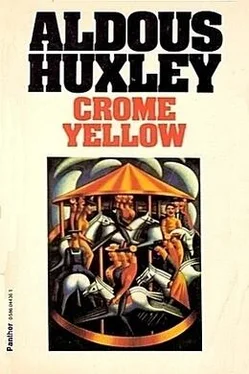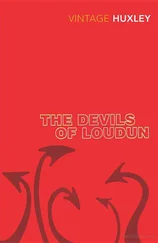"Closely following on the words concerning the drying up of Euphrates comes the prophecy of Armageddon, that world war with which the Second Coming is to be so closely associated. Once begun, the world war can end only with the return of Christ, and His coming will be sudden and unexpected, like that of a thief in the night.
"Let us examine the facts. In history, exactly as in St. John's Gospel, the world war is immediately preceded by the drying up of Euphrates, or the decay of Turkish power. This fact alone would be enough to connect the present conflict with the Armageddon of Revelation and therefore to point to the near approach of the Second Advent. But further evidence of an even more solid and convincing nature can be adduced.
"Armageddon is brought about by the activities of three unclean spirits, as it were toads, which come out of the mouths of the Dragon, the Beast, and the False Prophet. If we can identify these three powers of evil much light will clearly be thrown on the whole question.
"The Dragon, the Beast, and the False Prophet can all be identified in history. Satan, who can only work through human agency, has used these three powers in the long war against Christ which has filled the last nineteen centuries with religious strife. The Dragon, it has been sufficiently established, is pagan Rome, and the spirit issuing from its mouth is the spirit of Infidelity. The Beast, alternatively symbolised as a Woman, is undoubtedly the Papal power, and Popery is the spirit which it spews forth. There is only one power which answers to the description of the False Prophet, the wolf in sheep's clothing, the agent of the devil working in the guise of the Lamb, and that power is the so–called 'Society of Jesus.' The spirit that issues from the mouth of the False Prophet is the spirit of False Morality.
"We may assume, then, that the three evil spirits are Infidelity, Popery, and False Morality. Have these three influences been the real cause of the present conflict? The answer is clear.
"The spirit of Infidelity is the very spirit of German criticism. The Higher Criticism, as it is mockingly called, denies the possibility of miracles, prediction, and real inspiration, and attempts to account for the Bible as a natural development. Slowly but surely, during the last eighty years, the spirit of Infidelity has been robbing the Germans of their Bible and their faith, so that Germany is to–day a nation of unbelievers. Higher Criticism has thus made the war possible; for it would be absolutely impossible for any Christian nation to wage war as Germany is waging it.
"We come next to the spirit of Popery, whose influence in causing the war was quite as great as that of Infidelity, though not, perhaps, so immediately obvious. Since the Franco–Prussian War the Papal power has steadily declined in France, while in Germany it has steadily increased. To–day France is an anti–papal state, while Germany possesses a powerful Roman Catholic minority. Two papally controlled states, Germany and Austria, are at war with six anti–papal states—England, France, Italy, Russia, Serbia, and Portugal. Belgium is, of course, a thoroughly papal state, and there can be little doubt that the presence on the Allies' side of an element so essentially hostile has done much to hamper the righteous cause and is responsible for our comparative ill–success. That the spirit of Popery is behind the war is thus seen clearly enough in the grouping of the opposed powers, while the rebellion in the Roman Catholic parts of Ireland has merely confirmed a conclusion already obvious to any unbiased mind.
"The spirit of False Morality has played as great a part in this war as the two other evil spirits. The Scrap of Paper incident is the nearest and most obvious example of Germany's adherence to this essentially unchristian or Jesuitical morality. The end is German world–power, and in the attainment of this end, any means are justifiable. It is the true principle of Jesuitry applied to international politics.
"The identification is now complete. As was predicted in Revelation, the three evil spirits have gone forth just as the decay of the Ottoman power was nearing completion, and have joined together to make the world war. The warning, 'Behold, I come as a thief,' is therefore meant for the present period—for you and me and all the world. This war will lead on inevitably to the war of Armageddon, and will only be brought to an end by the Lord's personal return.
"And when He returns, what will happen? Those who are in Christ, St. John tells us, will be called to the Supper of the Lamb. Those who are found fighting against Him will be called to the Supper of the Great God—that grim banquet where they shall not feast, but be feasted on. 'For,' as St. John says, 'I saw an angel standing in the sun; and he cried in a loud voice, saying to all the fowls that fly in the midst of heaven, Come and gather yourselves together unto the supper of the Great God; that ye may eat the flesh of kings, and the flesh of captains, and the flesh of mighty men, and the flesh of horses, and of them that sit on them, and the flesh of all men, both free and bond, both small and great.' All the enemies of Christ will be slain with the sword of him that sits upon the horse, 'and all the fowls will be filled with their flesh.' That is the Supper of the Great God.
"It may be soon or it may, as men reckon time, be long; but sooner or later, inevitably, the Lord will come and deliver the world from its present troubles. And woe unto them who are called, not to the Supper of the Lamb, but to the Supper of the Great God. They will realise then, but too late, that God is a God of Wrath as well as a God of Forgiveness. The God who sent bears to devour the mockers of Elisha, the God who smote the Egyptians for their stubborn wickedness, will assuredly smite them too, unless they make haste to repent. But perhaps it is already too late. Who knows but that to–morrow, in a moment even, Christ may be upon us unawares, like a thief? In a little while, who knows? The angel standing in the sun may be summoning the ravens and vultures from their crannies in the rocks to feed upon the putrefying flesh of the millions of unrighteous whom God's wrath has destroyed. Be ready, then; the coming of the Lord is at hand. May it be for all of you an object of hope, not a moment to look forward to with terror and trembling."
Mr. Bodiham closed the little pamphlet and leaned back in his chair. The argument was sound, absolutely compelling; and yet—it was four years since he had preached that sermon; four years, and England was at peace, the sun shone, the people of Crome were as wicked and indifferent as ever—more so, indeed, if that were possible. If only he could understand, if the heavens would but make a sign! But his questionings remained unanswered. Seated there in his brown varnished chair under the Ruskinian window, he could have screamed aloud. He gripped the arms of his chair—gripping, gripping for control. The knuckles of his hands whitened; he bit his lip. In a few seconds he was able to relax the tension; he began to rebuke himself for his rebellious impatience.
Four years, he reflected; what were four years, after all? It must inevitably take a long time for Armageddon to ripen to yeast itself up. The episode of 1914 had been a preliminary skirmish. And as for the war having come to an end—why, that, of course, was illusory. It was still going on, smouldering away in Silesia, in Ireland, in Anatolia; the discontent in Egypt and India was preparing the way, perhaps, for a great extension of the slaughter among the heathen peoples. The Chinese boycott of Japan, and the rivalries of that country and America in the Pacific, might be breeding a great new war in the East. The prospect, Mr. Bodiham tried to assure himself, was hopeful; the real, the genuine Armageddon might soon begin, and then, like a thief in the night…But, in spite of all his comfortable reasoning, he remained unhappy, dissatisfied. Four years ago he had been so confident; God's intention seemed then so plain. And now? Now, he did well to be angry. And now he suffered too.
Читать дальше











